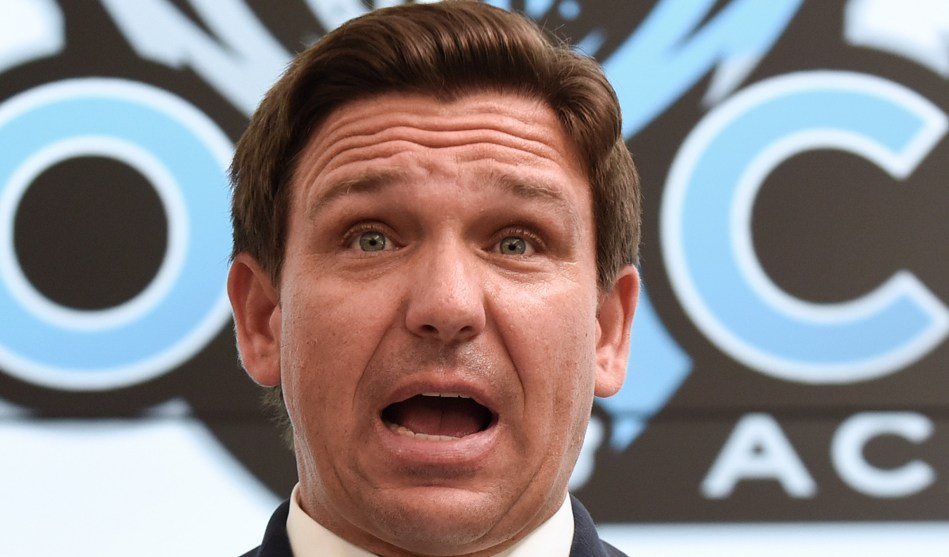
Florida Gov. Ron DeSantis speaks at a December 2021 press conference in support of his party's "Stop W.O.K.E. Act."Joe Burbank/Orlando Sentinel/TNS/Zuma
Ron DeSantis is taking his war on masks to a new—and possibly unconstitutional—level.
Last year, Florida’s Republican governor issued an executive order banning mask mandates in schools. Now, he’s backing a proposal to withhold $200 million in education funds from 12 counties that kept requiring masks, and divert their money to 55 school districts that complied.
The proposal, part of a Florida House of Representatives budget bill sponsored by casino-mogul-turned GOP state legislator Randy Fine, is pegged to the salaries of staff making over $100,000 in the targeted districts, although it wouldn’t directly slash those administrators’ salaries. The bill’s highest-profile opponent? Ron DeSantis. Less than two weeks ago, DeSantis rejected the proposal, objecting that it would “penalize a teacher or student because of the action” of their school board. But the governor just reversed course, tweeting his thanks to Fine for “heeding my call to protect students and teachers” from penalties aimed at “politicians and bureaucrats who defied Florida law by force masking kids.” While the state Senate hasn’t yet worked the salary cuts into its proposed budget, DeSantis’ approval helps pave the way for the suggestion to become law. (The Florida Department of Education has already cut some pro-mask districts’ funding in the amount of their school boards’ pay.)
— Ron DeSantis (@GovRonDeSantis) February 15, 2022
If Fine’s plan comes to fruition, it’s likely to face substantial legal challenges. As The Guardian points out, the provision is misguided—even on its own terms—in punishing administrators who enforced mask mandates, not just the school board members who set them. And while Fine has insisted that “these school districts broke the law,” it’s not clear that they did: The school districts all dropped their mandates once the issue was settled in court. In fact, the budget provision itself might violate Florida’s state constitution, which prohibits the state legislature from “passing a general law of local application to impose fines.”
No matter how it pans out, a plan to cut school budgets in a state already firmly in the bottom 10 for per-pupil educational spending is not a good look.















